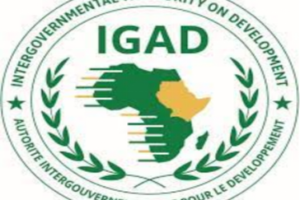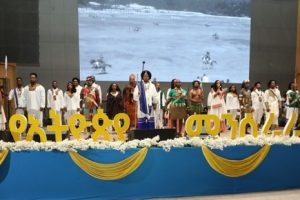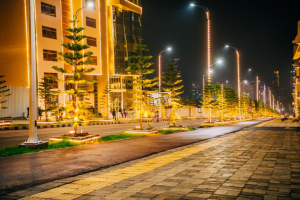
BY FITSUM GETACHEW
In a recent survey that was carried out by a radio station, I was surprised to hear how much confusion there is among the young generation of Ethiopians regarding some historical facts about Ethiopia including commemorations or anniversaries such as the Patriots Day. Some youths clearly could not distinguish between the Adwa Victory Day and the Patriots Day. Some did not distinguish between the timing. May be it was because in both cases we have Italy involved in the story. But there is a clear difference between Patriots Day and the Adwa Victory Day. May be we can say they are similar because they are expressions of victory and the defeat of the invading forces but the background of the history is clearly different one from the other as well as the timing and the circumstances of the conflict that ended in the reaffirmation of Ethiopia’s sovereignty.
Patriots Day happened in 1941 when the Second World War was in full swing involving practically every major force in the world notably all European nations, the US, Asia with Japan in the forefront and India following its colonial master England. Ethiopia was the victim of Fascist Italy’s aggression in 1936 way before the Second World War was initiated and it is considered by many observers as the prelude to the world war. The Fascist Duce Mussolini had his grudges over Ethiopia and had been considering seriously how to take revenge against it for having humiliated his country at the Battle of Adwa.
He used to say that he wanted to clean that dark spot in Italian history by going to war against Ethiopia and taking it as a colony and join it with its other colonies Somalia and Eritrea and create the ‘Italian East Africa’ or what was known in Italian as ‘Africa Orientale Italiana’. It was a huge plan for him and it was a matter of prestige. Mussolini was often heard repeating the phrase that he was destined to recreate the great Roman Empire and make Italy once again a glorious and grand state. However, Italy was late in the ‘scramble for Africa’ and trying to expand his empire he had only Ethiopia to look at as a free country available for conquest all the rest having been occupied by other European powers such as Britain, France and Portugal.
Adwa happened in the late nineteen eighties when the scramble for Africa was hot following the famous Berlin Conference where European nations made their agreement to take territories in Africa. Italy was late and had only Ethiopia in its radar as other states were already colonized and for that to happen, it had to create a pretext to invade Ethiopia. We remember the notorious Treaty of Wuchale Article 17 that created an equivocal interpretation between the Amharic version and the Italian one. Reference was made to the Italian version which stated that Ethiopia was to be practically a protectorate of Italy and the status of Ethiopia was to be reduced to a colony. This was not stated in these terms in the Amharic version. Hence, when the then Ethiopian Emperor Menelik realized the true intentions of Italy, he decided to show his opposition and come what may he would not accept to compromise his country’s sovereign status.
This practically became the cause of the outburst of hostilities and Italy tried to invade Ethiopia with its forces stationed in the north in Eritrea already its colony. The result was the Battle of Adwa which concluded a series of attacks, counterattacks, and battles that finally ended in Adwa with a major overwhelming victory of Ethiopian forces over the invading army. Once again, Ethiopian patriots showed their bravery and resolve by defending their country’s sovereignty and dignity as well as freedom by staging a huge fight despite its inferior army and the highly superior arsenal of the invading forces.
Throughout the history of Ethiopia, the patriots have always fought bravely whenever there were invading forces trying to tamper with the freedom and dignity of the nation. Common citizens would fight with whatever arms they could avail and go to the battle field en masse and defend their sovereignty. It is a long history of Ethiopian affairs witnessed by various foreign reporters and correspondents as well as adventurers and military officers. We have the testimonials of those who were present at the various episodes of history of our nation and many of their eye witness accounts can be found written in books and reports deposited in libraries in various parts of Europe and the US. Some of them have been found and translated into Amharic by Ethiopian scholars; others have remained in the original language in which they were written.
This will be the homework of the new generation of Ethiopians to do the necessary research and bring them to light to the larger audience. Undoubtedly, knowing one’s history is the first step that can help forge future plans of a country. Ethiopians hence must know their true history and not succumb to contrasting narratives that may be motivated by political goals. History must not be rewritten to suit the political ambitions of any force that happens to be on power. We have seen similar trends in the past not only in Ethiopia but also in other countries and this can lead to national discord and confusion and eventually instability.
Historians have written that Adwa was a result of the resolve and organization of Emperor Menelik who managed to bring all Ethiopians together with his tactful leadership and defeated a European power of the times. This victory put Ethiopia on the map of the world deserving the recognition of all important nations in the world. Following Adwa victory many nations of the world decided to open their missions and consulates in Addis Ababa. After all, a tiny African nation had shown its ability to defend its sovereignty and independence resisting to an aggression.
There is a connection between this story and what was to happen forty years later by Mussolini and his forces. Again there was this ambition by the Duce to conquer Ethiopia and make it an Italian colony and for that he had to create a pretext to wage a war against Ethiopia. He advanced his forces from both the north as well as the south near the Ethiopian sovereign territory. And claiming that his forces were attacked by Ethiopian troops in the east at a locality called Wolwel, he began a major offensive. This major Fascist invasion met a lot of resistance from Ethiopian troops and patriots and only with the use of aircrafts and biological weapons such as napalm did he manage to stifle the resistance of the Ethiopian fighters. This major offensive may have enabled the Fascist troops to occupy the major urban centers but the Ethiopian patriots never gave up fighting in the resistance in the rural areas using guerrilla warfare. The Fascists never had a peaceful sleep throughout their stay in Ethiopia.
For five years until the ultimate defeat of the Fascists and the liberation of Ethiopia from their occupation, the Ethiopian patriots continued to attack the Fascist forces in every manner they could. At times these patriots were subjected to fierce and atrocious measures taken by frustrated Fascist leaders but the patriots never gave up nor did they ever surrender to the mass killings committed deliberately by the frustrated invading forces. The five years of fighting, the five years of resistance of the Ethiopian patriots are considered as among the darkest in the history of the country because people were forced to pay every sacrifice to resist the occupation. People suffered all sorts of harassments by the Fascists.
The patriots made their bases in the countryside and attacked the bases of the Fascists in the urban areas. There are several yet unrecorded history pages to be written by the various patriots’ leaders of the resistance such as the famous Ras Abebe Aregay, Ras Desta Damtew and others. This is the story of Ethiopian patriots but not only those in the forefront of the hostilities were the ones involved in the eventual liberation of every bit of territory in the country but also other people including women who prepared and availed provisions for the patriots or gave the patriots precious information about the organization and whereabouts of the major stations of armaments and troops. It was a coordinated relentless resistance that eventually resulted in the defeat of the Fascists later on supported by the English who after the outbreak of World War II and Britain itself was attacked by the Nazi-Fascist groups; it had to join the Ethiopian forces and together facilitated the demise of the Fascist forces.
On May 5, 1941, five years exactly to the day Mussolini had claimed victory over Ethiopian forces at Venice Square in central Rome, Emperor Haile Selassie got into his capital escorted by the patriots and a contingent of British troops including Colonel Orde Wingate who was subsequently to be ordained General. The Ethiopian tricolor was once again to be hoisted in Addis Ababa and; today we have the Victory Monument at Arat Kilo in the heart of Addis near the presidential palace to commemorate this historical page of the country. Patriots Day is that day in which the resistance movement of Ethiopian patriots did bear fruits and the dark days of occupation of the Fascist forces were to end. It was the beginning of a new era for Ethiopia and the resumption of normal peaceful activities that were hampered by the invasion of the Fascists.
Ethiopia does not have liberation day to celebrate that marks the end of colonial regime because even if the Fascists tried hard to govern the country under a firm grip, there has never been peace in the five years of violence and Ethiopian patriots have always fought to depose them of power eventually succeeding. Ethiopia celebrates hence Victory Day. Adwa was a victory that happened in May, 1896. Forty years later Patriots Day came in May 1941. There seems to exist a parallel between the two events but they are two different, separate historical records.
The history of Ethiopia has often been unfortunately manipulated by politicians to suit their own agenda. Certain unfounded narratives have been heard or written here and there but the Victory of Adwa and the Patriots Day Victory cannot be manipulated and the new generation of youths should be able to understand them well and pay the necessary tribute to all Ethiopians who fought against invaders and conserved this ancient country independent and sovereign.
The sacrifices paid by generations of patriots who never desisted from fighting frontally against any enemy, irrespective of the might and the ammunitions they may be equipped with, demonstrates that Ethiopians do not compromise with their freedom and sovereignty. They do not compromise with their dignity. They never made distinction over the origins of their comrades in arms because Ethiopians of all ethnic groups were found fighting together against the enemy, united, and that is what the current generation of youths must learn from them. Divided we would have already been colonized and become dehumanized and oppressed as many of our brothers and sisters have been in the age of colonialism. Ethiopia’s resistance to invasions has been an inspiration for other African peoples and following Ethiopia’s victory over European forces, other African peoples took the example and intensified their resistance for liberation to eventually get back their independence.
It must be underlined that it is only through the unity and coordination of the patriots that Ethiopia managed to secure its borders and its independence against invading forces through the centuries. Internal division and rivalry can only lead enemies of the country to take full advantage and attack its sovereignty which by the way is valid even for the modern days. Internal chaos is an invitation for alien forces to fish in the troubled waters. These foreign forces would have the opportunity to try to meddle in our internal affairs and hamper us from continuing with our development trajectory and our quest for a greater, more democratic and just society in freedom and peace.
THE ETHIOPIAN HERALD THURSDAY 18 MAY 2023





